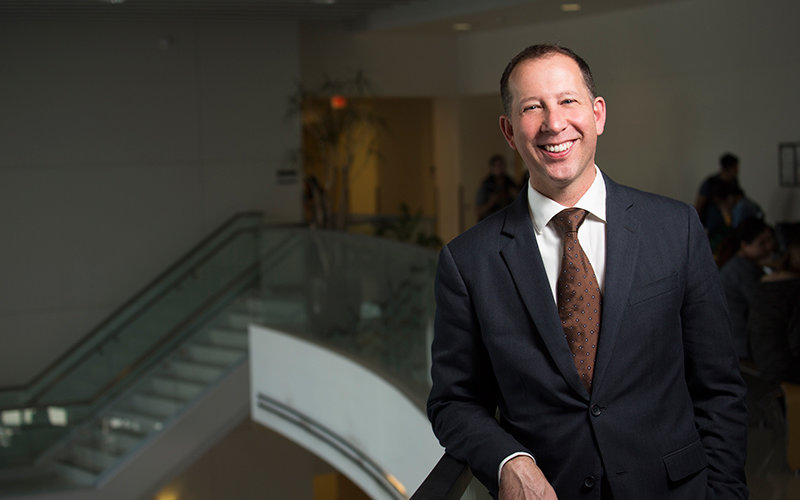
Scott Paynton says he’s lived a life “under the Cal State University umbrella.” His father was a professor of sociology at Cal State San Bernardino, and Paynton was most recently the associate dean of the College of Arts, Humanities and Social Sciences at Humboldt State University.
He earned a bachelor’s degree in English from Cal State San Bernardino and a master’s degree in human communication studies from Cal State Chico before heading to Southern Illinois University, where he earned a doctorate in communications.
That CSU career path shifted recently when Paynton moved to Southern California and joined the Cal State Fullerton team on Feb. 22, as dean of the College of Communications.
“Dr. Paynton’s scholarship, demonstrated leadership skills and passion for quality education position him well to help facilitate excellence in learning for CSU students, as well as an innovative and collaborative working environment for faculty and staff in the College of Communications,” said José L. Cruz, provost and vice president for academic affairs.
Paynton said he welcomes the sunnier skies of Southern California and plans to surf and commute to work by bicycle more often than Northern California’s climate allowed.
We asked Paynton five questions about his decision to pursue the dean’s post at Cal State Fullerton and his goals for the College of Communications.
Why did you choose to seek a position at Cal State Fullerton, and why now?
“I sought the position at Cal State Fullerton because of the many exceptional things the faculty, staff and students are doing. I was also very impressed with the senior leadership and the commitment to being a national model comprehensive university. Those two things, plus the diversity of the campus and surrounding communities, make this an ideal place to help facilitate even more exciting opportunities for those on campus and in the community.”
What do you see as the biggest challenge for the College of Communications?
“Of course, public education has seen less and less support over the last few decades. I believe that the biggest challenge for the college is that of resources. What I mean by resources includes both financial resources as well as time. Our faculty and staff work exceptionally hard, so anything I can do to free up time and provide financial resources will be a priority.”
What are your goals for the College of Communications?
“I certainly want to make sure the strategic goals of the college support the campuswide strategic plan, as well as the academic master plan. To that end, there are incredible opportunities for partnerships and collaborations within the college, across colleges, across campus and in the community. I hope to facilitate ‘connecting the dots’ to promote these partnerships and collaborations. Of course, the specifics will be done through consultation and collaboration with many people in the college and across campus.”
How do you define success for a College of Communications graduate?
“I believe success for a College of Communications graduate extends beyond proficiency in their respective majors and finding a job. Not only are we educating students regarding the content of our programs, we also are educating them to become global citizens in a diverse and complicated world. It is my hope that we produce graduates that engage in the world in ways that are positive and beneficial.”
Can you share specific success you had in your most recent role as associate dean of the College of the Arts, Humanities and Social Sciences at Humboldt that you would like to try or replicate at CSUF?
“We have had a very successful faculty leadership mentoring program in the College of Arts, Humanities and Social Sciences over the past few years. With a shortage of leadership occurring nationwide in colleges and universities, mentoring faculty to become future leaders is essential in maintaining the integrity of our universities. I am hoping to explore those opportunities here in the College of Communications.”